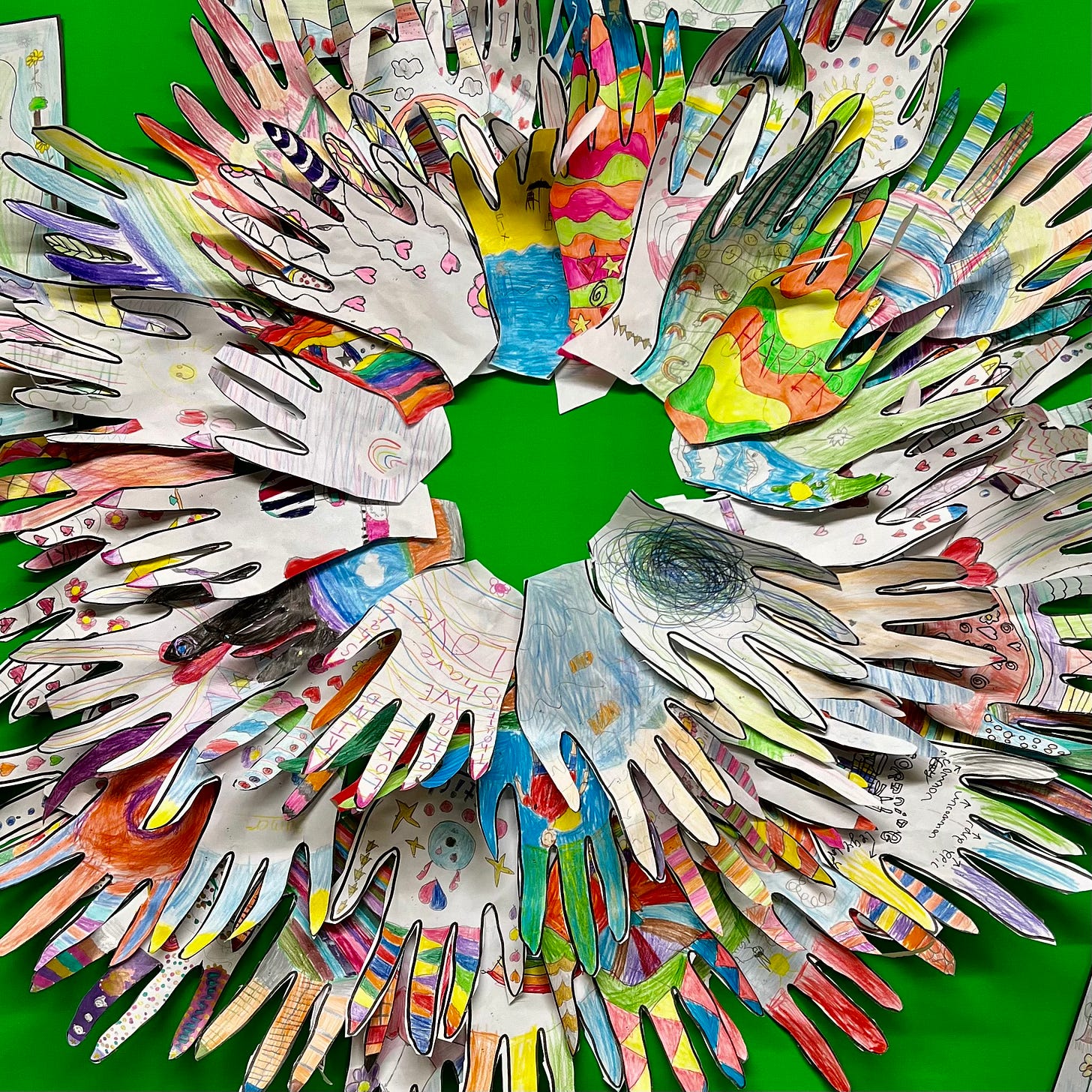When flags fly
When fear flies from flagpoles, will we choose silence, or will we choose welcome?
Every morning, on the way to school, I drive along a particular backstreet road - a shortcut to the school. Lately, it is lined with flags. Bold and impossible to ignore. They fly on lampposts, gardens and shopfronts. I know what they stand for, and I feel physically sick each time I see them.
As a second-generation immigrant, those flags tell me I do not belong. And I wonder: how does it feel for the children in our community who come from families like mine? What does it plant in their hearts as they walk past on the way to school? Fear? Discomfort? The quiet, gnawing sense that they are outsiders in the only home they have ever known?
This is not abstract. It is not far away. It is the very road we travel each morning.
A collective transition
I chose my children’s school not for its academic success, but because of the kind of people I hoped they would grow into there: kind, respectful, open-hearted. I trust the school to help shape them in this way, in the spirit of Christ’s teaching.
I should also say this: I am an interfaith minister. I have reverence for all paths, for the wisdom of Jesus, the compassion of the Buddha, the devotion of the Qur’an, the teachings of Torah, and the sacred stories carried in the earth itself. What I see at our school is a Christian expression of something I believe is universal: that we are called to welcome the stranger, to honour our differences, and to make a home wide enough for all.
Our school has often been more faithful to the teachings of Jesus than the institutional Church itself. It has modelled mercy, forgiveness and welcome. For this, I am grateful. But it also means the school, like all of us, carries responsibility.
Because what is happening now is a collective transition.
The rise of flags, the call to “take back our country”, the protests on our streets, these are not passing moments. They are signals of a deeper shift. They are thresholds asking us who we want to be.
We can close our eyes and ears and hope it blows over. Or we can recognise that silence is also a choice. Transitions, whether personal or collective, always demand something of us. They press us to decide what we stand for, what values we live by, what kind of future we want to hand to our children.
The Jesus lens
Jesus’ entire ministry was about welcome. He spoke with the Samaritan woman at the well (John 4), crossing every barrier of race, religion, and gender. He told the parable of the Good Samaritan (Luke 10:25-37), where the outsider is the one who shows love. He said, “I was a stranger and you welcomed me” (Matthew 25:35).
To follow Him today is to make sure no one in our communities feels unwelcome. That is the heart of it.
The truth about our country
Britain has always been a nation woven from many peoples: Romans, Saxons, Vikings, Normans, and countless others. Today, 18 per cent of people in England and Wales were born outside the UK, and nearly one in three children under 10 has at least one foreign-born parent.
This is who we are. To love this country means to love its people, all of them.
What do we stand for
Flags can be mistaken for football celebrations or a flash of colour. But children notice. Mine certainly did. And unless we help them understand, they are left to interpret the message on their own. That is why it matters to speak, even when it feels uncomfortable.
Transitions always bring us to the threshold of choice. This is such a moment.
So I ask you: what story will we live by when fear is flying from flagpoles?
Will we step back into silence? Or will we step forward, in the spirit of love that casts out fear?
Micropractice: Listening for Welcome
When fear or exclusion feels loud in the world around you, pause for a moment and do this:
Step outside, if you can and it’s safe, and find something alive. A tree, a birdcall, the wind moving in the grass.
Place a hand over your heart and breathe slowly three times.
Ask yourself: What is welcoming me here? What would welcome look like in me?
The answer can be small. Or big! Maybe you find the breeze or the sky welcomes you. And maybe all it takes is a soft word or a kind smile to be welcoming.
Carry that with you into the day.
Stay grounded. Go gently. Let love be your compass.
References
Office for National Statistics (ONS), Census 2021: International migration, England and Wales. Published 2023.
Office for National Statistics (ONS), Census 2021: Demography and migration, England and Wales. Published 2022.



A beautiful piece of writing truth Tania. Who are the immigrants and who are the British? Our country has always been a melting pot of races and cultures and generally people have been welcomed although not by everyone. I don't know what you say to your children but I am glad there are people like you who know that they need to speak to them rather than let their kids make up their own minds with help from friends and social media. What does being British even mean? If people had their DNA done they may well be surprised. With my surname I definitely have French, Canadian and possibly Jewish blood in my veins from my dad's side and my mum's Irish Roman Catholic family. All I can do is hold out the hand of friendship, a little smile here, a welcome there and that includes those who are protesting and hanging the flags because deep down we are all afraid of not belonging.